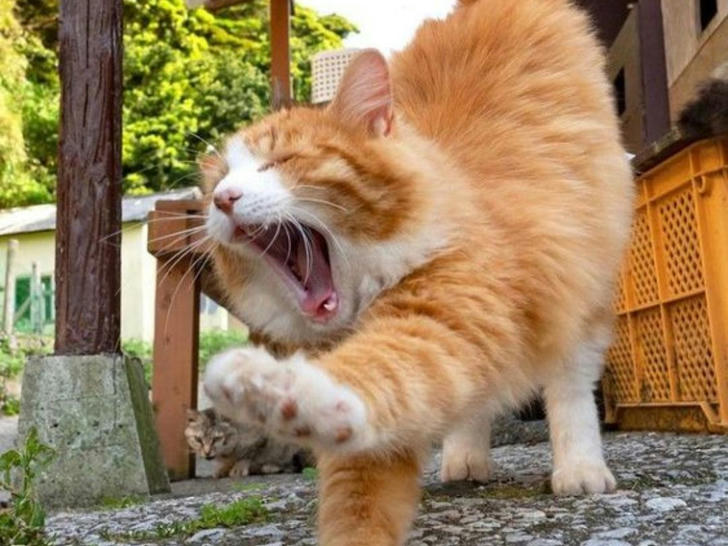Understanding Your Cat

Cats are fascinating creatures, known for their independent nature and unique personalities. Understanding how they perceive the world around them can greatly enhance the bond between you and your feline friend. From recognizing their names to engaging them with stimulating activities, cats thrive in environments that cater to their instincts and preferences. Additionally, being aware of what they dislike can help create a more harmonious living space. This article explores the nuances of cat behavior, offering insights into name recognition, effective enrichment strategies, and common aversions that every cat owner should know.

Six activity suggestions
Providing enrichment for cats is essential for their physical and mental well-being. Cats thrive in environments that stimulate their natural instincts and curiosity. Here are six effective enrichment ideas to keep your feline friend engaged:
1.Interactive Toys: Toys that mimic the movement of prey, such as feather wands or laser pointers, encourage your cat to chase and pounce, fulfilling their hunting instincts. Rotate these toys regularly to maintain interest.
2.Puzzle Feeders: Using puzzle feeders not only makes mealtime more exciting but also engages your cat's brain. These feeders require your cat to work for their food, promoting mental stimulation and slowing down their eating.

3.Vertical Space: Cats love to climb and perch. Providing cat trees or shelves allows them to explore vertical spaces, satisfying their natural climbing instincts and giving them a sense of security from high vantage points.
4.Safe Outdoor Access: If possible, create a catio or secure outdoor space where your cat can enjoy fresh air and observe the outside world safely. This stimulates their senses and allows them to experience new sights and sounds.
5.Sensory Stimulation: Introduce new scents, such as catnip or safe herbs, to your home. Cats are curious creatures, and new smells can provide mental stimulation and engage their natural instincts.
6.Playtime Routine: Establish a regular playtime routine to bond with your cat and keep them active. Engage in play sessions that mimic hunting behavior, and be attentive to your cat’s preferences for different types of play.
By implementing these enrichment ideas, you can create a more stimulating environment for your cat, promoting their happiness and well-being.

What They Dislike
Cats are known for their unique personalities and preferences, and there are several things they typically dislike. Understanding these aversions can help create a more harmonious living environment for both you and your feline friend. Here are seven common things that cats tend to hate:
1.Water: Most cats have an innate dislike of water. Whether it's getting a bath or even walking on wet surfaces, they often prefer to stay dry. If bathing is necessary, try using a damp cloth instead of submerging them in water.
2.Strong Scents: Cats are sensitive to strong odors, particularly citrus and certain essential oils. They often avoid these scents, so it's best to keep them away from areas where your cat spends time.
3.Loud Noises: Sudden loud sounds, like vacuum cleaners, thunder, or fireworks, can startle cats and cause stress. Providing a quiet space for your cat during noisy times can help them feel more secure.
4.Change in Routine: Cats thrive on routine, and disruptions, such as moving furniture or changes in feeding schedules, can unsettle them. Try to maintain a consistent routine to keep your cat feeling secure.
5.Being Held or Restricted: Many cats dislike being held or restrained. Respect your cat's personal space and allow them to come to you when they are ready for affection.
6.Dirty Litter Boxes: Cats are very particular about their litter boxes. A dirty box can deter them from using it, leading to accidents. Make sure to clean the litter box regularly to maintain their preference for using it.
7.Excessive Handling: While some cats enjoy being petted, others may feel overwhelmed by excessive attention. Pay attention to your cat's body language and give them the choice to engage or retreat.
By being mindful of these dislikes, you can foster a more comfortable and stress-free environment for your cat, ultimately enhancing your relationship with them.

Do cats know their names?
Studies have shown that cats can indeed recognize their own names. While they may not respond as quickly as dogs, cats often display some reaction, such as turning their heads or pausing their current activity, when they hear their name. Their response can vary based on their interactions with their owners and other stimuli in the environment. To encourage name recognition, owners can use positive reinforcement techniques, such as treats or affection, whenever the cat responds to its name. This highlights the importance of communication and understanding between cats and their owners.

Conclusion:
In conclusion, recognizing your cat's capabilities and preferences is crucial for fostering a happy and fulfilling relationship. By encouraging name recognition through positive reinforcement and providing various enrichment activities, you can cater to their natural instincts and keep them mentally stimulated. Moreover, understanding what your cat dislikes—such as strong scents and loud noises—can help create a safer and more comfortable environment. With a little knowledge and consideration, you can ensure that your home is a haven for your beloved feline, enhancing their well-being and your companionship.
